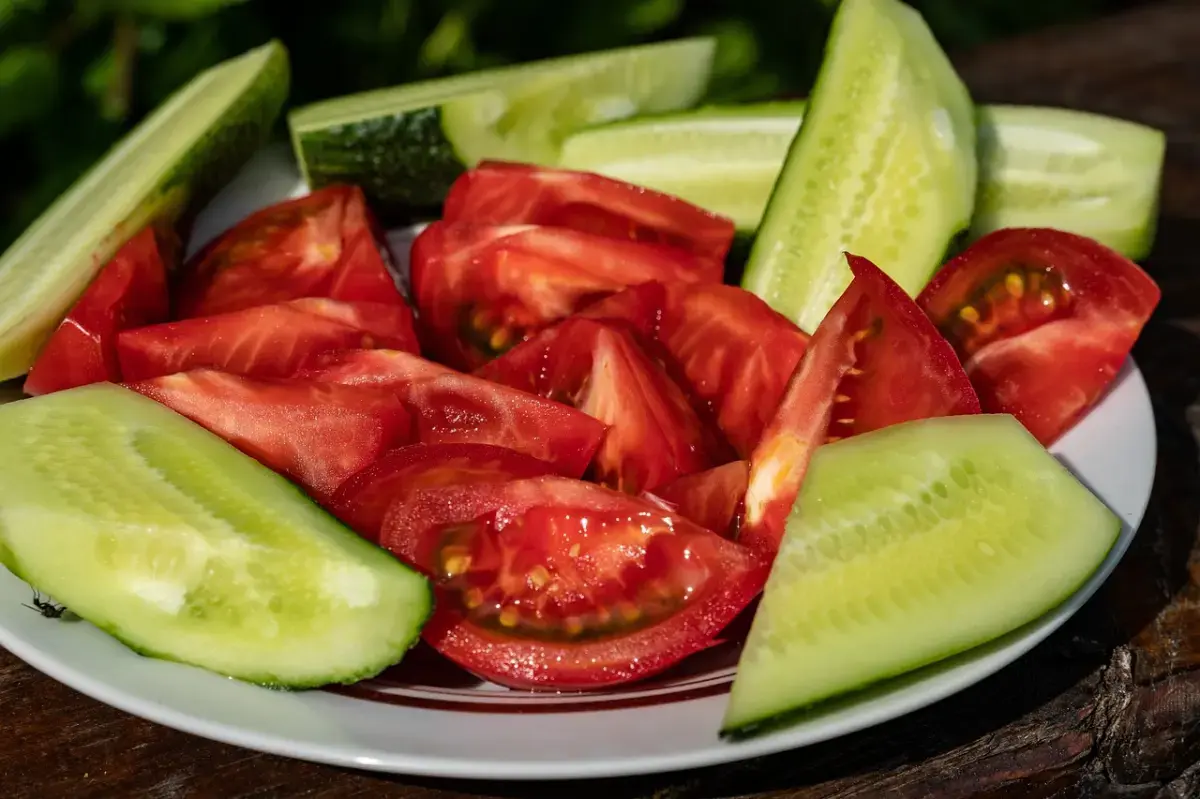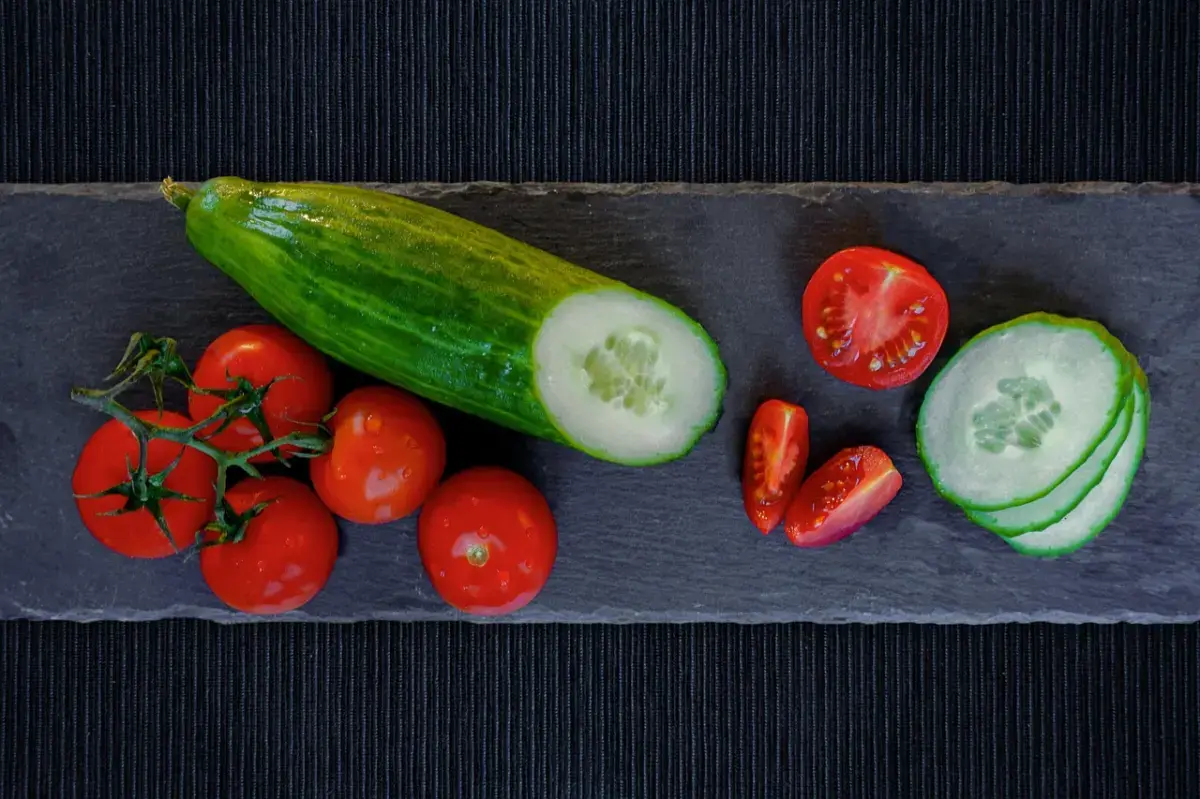
Together or Separate?
are packed with vitamins B and C, as well as potassium, beta-carotene, and chlorogenic acid—a phenolic compound that helps regulate blood pressure. Additionally, tomatoes are rich in the anti-inflammatory flavonoid naringenin, which aids in tissue repair, and the heart- and skin-friendly antioxidant lycopene, which prevents cholesterol oxidation, protects against harmful free radicals, and may help ward off cancer.
Cucumbers share similar qualities: they are high in fiber, potassium, , and B vitamins. These vegetables help prevent cholesterol buildup, maintain hydration, strengthen the heart muscle, improve metabolism, support thyroid health, and combat swelling. However, the valuable properties of both fruits can cancel each other out when consumed together in the same dish. At least, that’s the belief of proponents of the theory of food separation, who advise against eating tomatoes and cucumbers at the same time.
A Vegetable Mismatch
Nutritionists often explain the incompatibility of combining both in one salad by their belonging to different food groups: tomatoes are acidic, while cucumbers are alkaline. When mixed in a single dish, these chemically opposing fruits not only neutralize each other’s beneficial properties but also form salts that can harm the kidneys and liver, according to representatives of proper nutrition science, who back their claims with important clarifications.

point out that cucumbers contain a special enzyme—catalase (ascorbic acid)—that breaks down the vitamin C found in tomatoes. Moreover, cucumbers and tomatoes have different digestion times, leading to gas formation in the intestines as one product begins to ferment while the stomach digests its salad companion. Thus, frequent consumption of tomatoes and cucumbers together can indeed lead to stomach upset, opponents concede, although they generally do not see the combination of these vegetables as problematic.
A Controversial Issue
Supporters of another viewpoint agree that cucumbers digest faster than tomatoes, and the flesh and seeds of tomatoes remain in the stomach longer. However, the enzymes in cucumbers do not significantly affect the amount of vitamin C, as the enzymes present in the food and those produced by the body during chewing work together. Therefore, the enzymes available in cucumbers are insufficient for the rapid breakdown of vitamin C, or they lose their effectiveness in the acidic environment of the mouth and stomach.
The difference in acidity and digestion time does not cause fermentation or contribute to the formation of harmful salts in the stomach, argue advocates of the controversial combination, citing the body’s adaptation to mixed diets. Scientists who debunk the “incompatibility myth” do not consider the “vegetable mismatch” harmful. In fact, they emphasize the importance of vegetable balance, the use of unrefined oil for the absorption of fat-soluble vitamins, and the absence of negative individual reactions, they note.
Photo: Openverse, pixabay
